In 15 years of democracy, South Africa has struggled to shed its apartheid history in favour of legal and human rights for all its citizens including a right to free speech and human dignity. Unlike the U.S. model of free speech, South African speech laws do not include any tolerance for hate speech aimed at an individual or minority group. Section 16(2) of the South African Constitution bans hate speech based on race, ethnicity, gender or religion that incites harm. The South African Human Rights Commission (SAHRC) is the government agency responsible for investigating allegations of hate speech. When the South African Parliament created the SAHRC with the statutory authority to investigate human rights crimes including hate speech, it did not empower the agency to prosecute the crimes. This article argues that the SAHRC is a weak government institution and exists in a legal gray area in the South African law. It reviews three pertinent speech cases by the SAHRC. These cases show that while the agency has the same legal powers as any court to investigate, subpoena, and hold hearings, it does not have the authority to enforce any of its findings and recommendations. There is no legal mechanism in place to force a guilty party to be punished for breaking the human rights crime on hate speech. This article argues for a change to the South African law to strengthen the punitive powers of the SAHRC.
